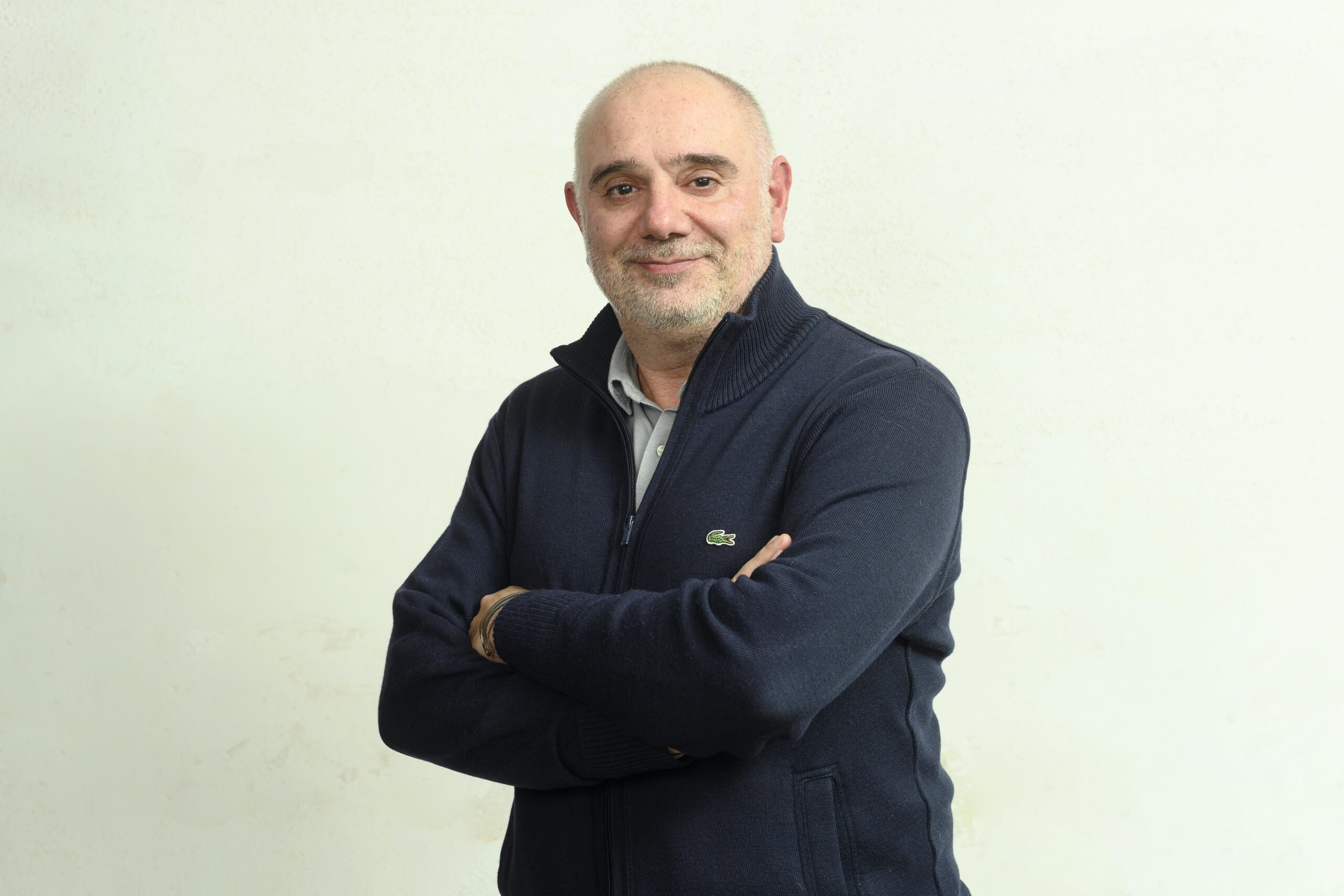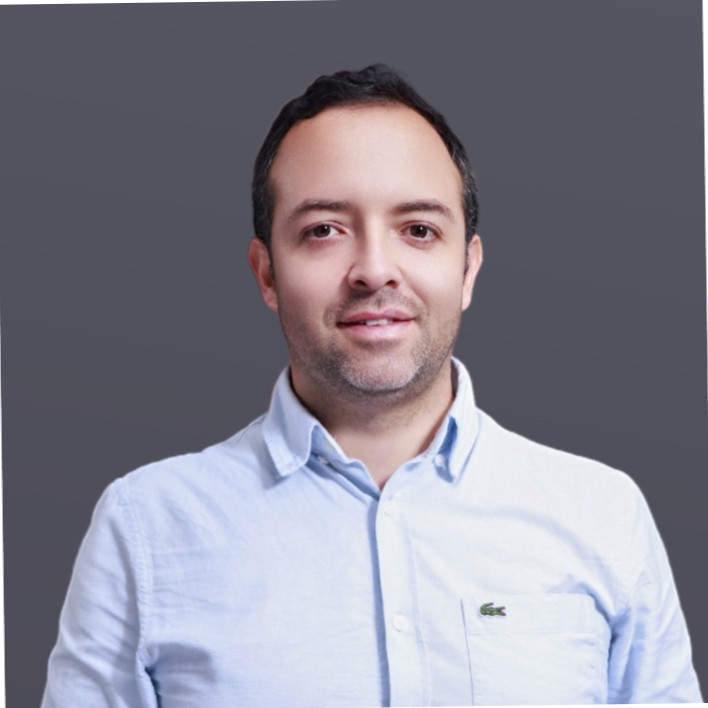Interview with David Tapias, Director of Open Innovation and Corporate Venturing at Fluidra
In a sector undergoing profound transformation, where sustainability and digitalisation set the direction, Fluidra arrives at Piscina Barcelona 2025 with a disruptive concept: the Positive Pool. David Tapias, the company’s Director of Open Innovation and Corporate Venturing, explains how Fluidra aims to redefine the swimming pool experience and its impact — from designing more efficient and circular products to creating intelligent ecosystems that care for both the planet and people. He also discusses the role of open innovation and corporate venturing, the company’s commitment to collaborating with start-ups and technology centres, and the advances in digitalisation that are shaping the smart pool of the future.
- From your position as Director of Open Innovation and Corporate Venturing at Fluidra, what role does innovation play in maintaining Fluidra’s status as an international benchmark?
Innovation is the driving force behind our global leadership in the pool and wellness sector. At Fluidra, we understand that innovation is not just about developing new technologies, but also about opening ourselves up to the wider ecosystem: collaborating with start-ups, universities, technology centres, and strategic partners who bring fresh perspectives and help us accelerate the arrival of new solutions to the market.
Moreover, innovation today cannot be separated from sustainability. Every step forward must create value for the user while also reducing environmental impact. Open innovation gives us access to talent, agile methodologies, and disruptive technologies, all of which enrich our ability to create more sustainable and efficient solutions.
Our role is twofold: on the one hand, to drive transformative projects that keep us at the forefront; and on the other, to act as catalysts for change within the sector, sharing knowledge and demonstrating that innovation and sustainability are not only compatible but the only viable path to a competitive and responsible future.
- This year, you’re officially presenting the Positive Pool concept at the show. What does it consist of?
At Fluidra, we’ve conceived the Positive Pool with a simple idea: every pool can generate a positive impact. It’s the pool that cares — for people and communities, and for the environment.
Environmentally, we aim to create pools that consume less water, less energy, and fewer chemicals, while integrating circular solutions such as rainwater harvesting and reuse systems. All of this is enabled by more efficient technologies and intelligent data management.
Socially, we want to strengthen the role of the pool as a space for health, safety, inclusion, and wellbeing. It’s not just a leisure facility — it’s also a space that promotes physical activity, social cohesion, and risk prevention.
Ultimately, the Positive Pool is a new way of looking at the swimming pool: not just as a collection of products, but as a living ecosystem capable of nurturing a more sustainable future.
- What makes this project stand out within the sector?
The key objective is for swimming pools — both residential and public — to be recognised as positive infrastructure for society and the environment, backed by clear evidence of sustainability, and contributing to global goals on efficiency, decarbonisation, and social wellbeing.
What sets the Positive Pool apart is that, for the first time, it offers a comprehensive and measurable vision of sustainability in our sector. Up until now, there have been isolated efforts in areas such as efficiency or safety, but no common framework bringing it all together. The Positive Pool links innovation, sustainability, and user experience within a single concept.
This means that installers have clear guidelines to offer more sustainable solutions, public pool managers gain tools to reduce water and energy costs, and residential users can enjoy a healthier and more efficient pool.
In short, we’re offering the sector a clear path to evolve towards more responsible models, aligned with major sustainability challenges and delivering tangible benefits for everyone.
- Can you give us a concrete example of how the Positive Pool is applied to products, services, or user experiences?
The Positive Pool is expressed at various levels, which reinforce each other:
-
- More efficient products: variable-speed pumps, covers, low-salinity chlorinators, or full inverter heat pumps. What really matters is how these interact. For example, combining a variable-speed pump with a cover and a chlorinator leads to savings in electricity, reduced chemical consumption, and lower water evaporation — all at once.
- Smart services: sustainability assessments, advanced monitoring, and data analytics. This enables both private owners and public pool operators to understand the real performance of their systems and adjust usage patterns to be more efficient. For public pools, this includes tools such as digital twins, which can anticipate failures and optimise consumption.
- Circular water management: rainwater collection, reuse of surplus water, and recovery of backwash water. This transforms the pool into a more autonomous and responsible system that protects our most precious resource: water.
The result for the end user is a more sustainable, healthier, and safer pool, with a smaller environmental footprint and greater everyday comfort.
- Sustainability is a strategic pillar across many industries. How is Fluidra integrating it into the design and development of its products?
We embed sustainability as a design criterion from the earliest concept stage of every product. We apply metrics that assess material circularity, in-use efficiency, and end-of-life recyclability. These same metrics are extended across our entire product range, allowing us to monitor the global evolution of our portfolio and steadily move towards a more sustainable offering.
We also carry out Life Cycle Assessments (LCAs) to quantify environmental impacts and identify the most significant stages in the overall footprint. This knowledge enables us to make more informed, data-driven decisions.
A concrete example is the redesign of our Skypool modules, where we have chosen a structural steel with a significantly lower carbon footprint than the market average — reinforcing our commitment to eco-design and reducing environmental impact.
- Which sustainable advances or solutions do you think will mark a turning point in the pool sector?
Without a doubt, digitalisation will be decisive. The shift towards the Smart Pool — a connected, intelligent, self-managing pool — will be a watershed moment for the industry. Through systems that optimise water, energy, and chemical consumption in real time, we will achieve more efficient, sustainable, and user-friendly management.
In parallel, both through industry initiative and regulatory pressure, we’ll see greater integration of circular materials and the design of products with longer lifespans and easier repairability. Altogether, this points towards a pool model that not only fully embraces circularity but also becomes a digitalised ecosystem that is healthier, more sustainable, and more resilient.
- Fluidra promotes open innovation and corporate venturing initiatives. How is this strategy structured within the company?
Fluidra implements this strategy through Fluidra Lab, a platform that connects the company with start-ups, technology centres, and universities to drive innovation in the pool and wellness sector. The aim is to identify disruptive technologies and new business models that complement the company’s strategy.
Fluidra Lab acts as a bridge between the entrepreneurial ecosystem and Fluidra’s business units, facilitating the agile adoption of innovative solutions. It also promotes a culture of open innovation internally through the Fluidra Innovation Booster programme, integrating intrapreneur teams to accelerate the development of projects that create sustainable value for customers and strategic partners.
- What benefits has this open innovation model brought you?
Open innovation gives us access to talent, technologies, and emerging business models that would be difficult to develop internally with the same agility. Through Fluidra Lab, we accelerate experimentation with start-ups via real pilots, which reduces decision-making risks and improves time-to-market for new solutions.
It also strengthens our internal capabilities by fostering a collaborative and innovative culture aligned with future market needs. This approach has enabled us to develop more sustainable, digital, and user-centred products, reinforcing our leadership in the sector. Additionally, it helps us identify strategic investment opportunities in start-ups with high potential impact in our industry.
- If you had to define in one sentence what visitors will discover at Fluidra’s stand at Piscina Barcelona 2025, what would it be?
Discover the intelligent, digital, and sustainable pool: more efficiency for professionals, greater wellbeing for people, and better care for the planet.
Cristina Benavides
Contributor to Piscina Barcelona





